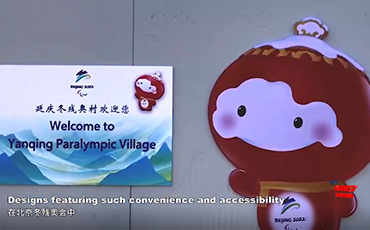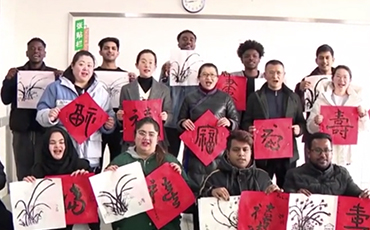How does RCEP benefit Sichuan?
On November 15, the Regional Comprehensive Economic Partnership (RCEP) covering 15 member states was officially signed. As a free trade area with the largest population participation, the most diverse membership structure and the largest development potential in the world, this is not only a highly symbolic achievement of regional cooperation in East Asia, but also a victory of multilateralism and free trade. It will certainly add new momentum to the development and prosperity of the region and contribute towards strengthen the recovery rate of the world economy.

This is a scene from the signing ceremony of the regional comprehensive economic partnership agreement (RCEP) in Hanoi, capital of Vietnam, on November 15.( Xinhua News Agency / Vietnam News Agency)
Bai Ming, deputy director of the International Market Research Institute of the Ministry of Commerce, believes that from a global perspective, the signing of the agreement is conducive to improving China's environment in relation to economic globalization. At present, among the three active regions of economic globalization, the North American economic circle has the North American Free Trade Area, the European economic circle has the European Union, but the East Asian economic circle lacked powerful institutional support. The signing of RCEP will compensate for this, allowing the East Asian economic circle to gain a more favorable position in the global competition in international division of labor.
‘The RCEP agreement is more beneficial to some industries in Sichuan with a long industrial chain and industries spanning multiple countries.’ In an interview, Bai Ming said that industries related to Japan, such as automobiles and electronics, are more intensive and have a more complex and dynamic production. Production cannot take place in one country. Such industries that require collaboration in other countries tend to gain the most from the agreement.
According to the data provided by Chengdu Customs, in the first 10 months of this year, Sichuan's import and export to RCEP trading partners totaled 226.23 billion yuan, a year-on-year increase of 21.7%. The total amount accounts for 33.8% of Sichuan's total foreign trade value. Sichuan's major exports to RCEP trading partners are integrated circuits, laptops and tablets. During the same period, the main imported commodities were integrated circuits, semiconductor manufacturing equipment, automatic measuring, testing and analyzing instruments and appliances.
Chen Bo, Professor of Huazhong University of Science and Technology and President of the Research Institute of Optics Valley Pilot Free Trade Zone, said that after the implementation of the specific provisions of the agreement, as many as 92% of the import and export of goods may realize zero tariff, thus reducing the purchase cost of zero tariff commodities and raw materials in the region, which also increases the profit margins of enterprises while leading to a drop in prices of finished products. Considering that Sichuan is at the intersection of the Land Silk Road and the Maritime Silk Road, and has a vast market hinterland, the southward market channel of this region will become more attractive. Specifically, the industrial chain between Sichuan and ASEAN will be more closely integrated. For example, some industries among capital intensive industries such as machinery, equipment and intelligent manufacturing will be transferred to Southeast Asia, rendering the construction of transnational industrial chain more smooth. With the signing of the agreement, products with Sichuan features will have a larger market while special products from Southeast Asia will find it easier to enter Sichuan.
‘The signing of the agreement has an immeasurable market driving force. In the past, Southeast Asia was the region with the highest import tariff of second-hand cars in the world. With the signing of the agreement, Asia is expected to become the largest export market of China's second-hand market.’ As producer of one of the first batches of second-hand car export pilot enterprises in Chengdu, Li Chuan, general manager of Sichuan Hongmeng Zhongtuo Automobile Import and Export Trade Co., Ltd., is very excited. Last year, Li Chuan's company invested and established a used car industrial park in Cambodia to charm overseas consumers.
After learning about the signing of RCEP agreement, Wang Qiang, chairman of Sichuan Jiachunqiu Liquor Culture Co., Ltd., immediately took to celebrating with his friends. Wang Qiang’s company is mainly engaged in the production and sales of liquor. In the foreign market, the main consumers are overseas Chinese. Last year, the export volume to Japan alone was more than 2 million yuan. ‘The signing of this agreement will bring great benefits for Sichuan liquor to enter the above partner countries.’ Wang Qiang said.(By Edina Liang)







